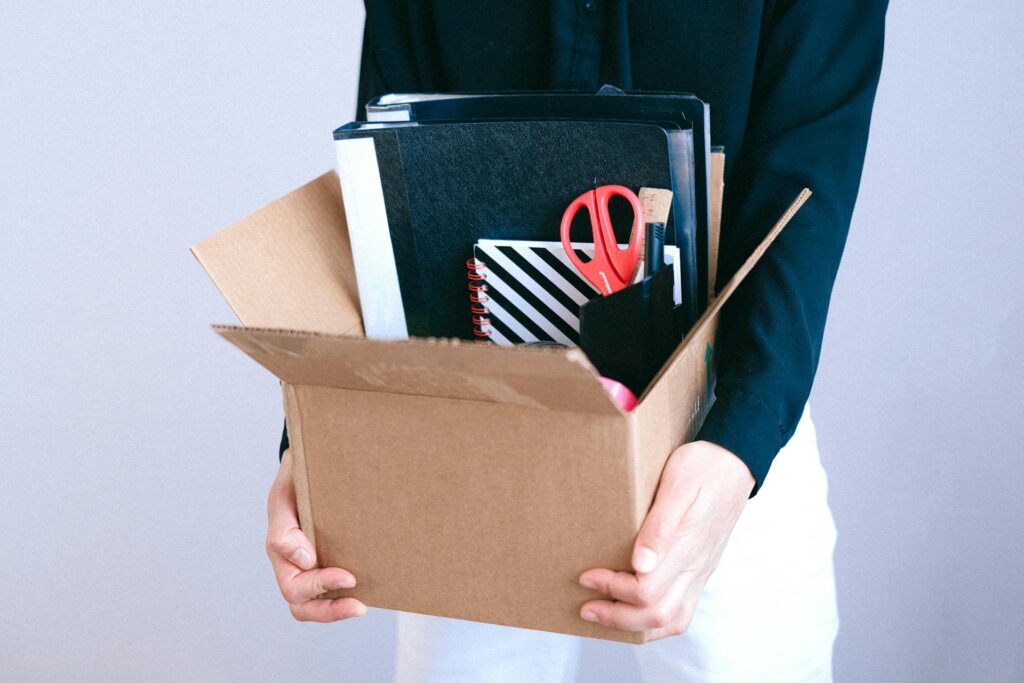Whether we’re talking about local, cross-country, or international relocations, there is a list of items movers won’t move you must get familiar with. Don’t hold it against them! There is an entirely reasonable explanation for this kind of restriction. Relocation companies just want to ensure that nothing terrible happens to their employees or your items. So let’s take a look at the following list and learn which of your belongings have no place in overseas freight.


Hazardous Objects Are at the Top of the List of Items Movers Won’t Move
According to the US Department of Transportation, there are nine classes of hazardous materials, from those that pose a threat constantly, such as radioactive materials, to those that are dangerous only during the shipment. According to federal law, carriers that ship this kind of cargo must have a permit to do so. The reason behind it is obvious – these objects and materials can endanger the environment, other items, or even lives. So, you can see why relocation teams see transporting these kinds of belongings as a risk.
No matter your reason to move, you’ll soon start researching tips for learning a new language in order to break a language barrier. But first, you’ll have to decide what to pack and what not to. With all the previous information in mind, when relocating across the world and getting international moving services, steer clear of packing the following items:
- Explosives – fireworks, ammunition, or even matches,
- Flammable liquids and gas – alcohol, ammonia, lighter fluid, gasoline, kerosene, paint,
- Toxic chemicals – pesticides, herbicides, fertilizers,
- Corrosives – acid-based batteries and various home cleaning products,
- High-pressure gas – fire extinguisher, helium gas, dust remover spray, and so on.
The Oddest Prohibited Items
Some of the previously mentioned materials are expected on the list of prohibited things. However, the hazardous nature of some other belongings will not be that obvious. Did you know that you can’t bring nail polish and nail polish removers when you decide to move to one of the best places to live abroad? Under some circumstances, they can be extremely flammable! And did you know that some commonly used cosmetic products fall under the dangerous category by federal regulations? Keep that in mind next time you’re wondering: Will movers move shampoo?
If you’re relocating to Greece or planning to move to the Bahamas, for example, bringing your scuba diving equipment from home might seem like a no-brainer. Think again! A high-pressure oxygen tank can become a serious safety hazard, so the gear should be left behind. Decide what to do with it before hiring an international moving company and getting professional packing services.
Some of Your Belongings May Need Additional Preparation for Shipping Overseas
Some objects you possess can be relocated when moving to another country, as long as they are adequately prepared. In most cases, it is a process where you’ll separate the object from the dangerous material it contains. Any item that works on flammable materials, for example, such as oil or gas (lawnmower, chainsaw, barbeque), must be drained before packing. Also, if you’re planning on using overseas vehicle shipping, remember that the car’s gas tank must be at least three-quarters empty before the pickup date.
The same goes for appliances that work with or are exposed to water, such as fridges or washing machines. Take enough time to clean and dry them properly, so they don’t create a humid atmosphere suitable for mold development.
Find a Proper Way to Dispose of Dangerous Materials Before Moving
What should you do with all those dangerous objects? You will not be able to board a flight with some of them in the luggage. But even if you can, consider the danger they pose. After all, in most cases, their replacement in the new country might not be hard or costly.
As for the materials you’re leaving behind, there are several options to choose from. Firstly, try to use up the stuff before the relocation day comes. For example, try to use all of the cleaning supplies you already have rather than buying additional supplies for deep-cleaning the house before the move.
Secondly, give away materials to those who can still make use of them (donate paint to schools or gift fireworks to your favorite neighbor with kids). Lastly, throw away or recycle the rest. Keep in mind that hazardous waste can’t be disposed of like any other object or material. Because it can pose a threat to the surroundings, find facilities that work with this kind of waste or contact people responsible for waste management.


Eliminate Perishable Food From the Packing List
When you’re in the middle of preparations for living overseas, don’t forget to leave some time for eating all the perishable food from the fridge. It‘s one more item to add to the list of things you shouldn’t bring when moving internationally. Why? Relocating overseas is a process that takes a lot of time. Perishable food can rot easily, which will create an odor that will creep into your furniture and clothes.
And that’s the least of your concerns. This kind of food attracts insects and can create mildew that can spread to other things. So if you don’t want to find ants, cockroaches, flies, and mold between belongings, don’t pack perishable food.
So, what should you do with all the perishable food in your home? It’s easy – don’t buy anything new until all that is stored has been eaten. However, if it is not manageable, plan on giving away everything that must be left behind. If there is enough time, you can even throw a goodbye party for friends where most of it can be used. If not, give the goods to your friends and neighbors, or find a place to donate them.
Look for Other Solutions for Plants and Pets
When deciding what to keep when moving overseas, know that many companies opt against relocating greenery because:
- Plants can carry pests and insects without your knowledge of it, which can result in many damaged belongings after the move ends.
- They are living things that usually demand attention, which is impossible to give when they are a part of international cargo. You can decide to bring plants on the plane, and it is possible, although you might need to obtain special permits. However, if you have a lot of greenery, make sure to choose your favorites to bring. Gift the rest to friends and family members.
- Many foreign countries have specific regulations for importing greenery. Some plants may be prohibited entirely, while others demand special permits, inspection, clearance, and quarantine. Research requirements must be on your relocating abroad checklist if you are determined to bring plants.
It should go without saying that pets can’t be transported like the rest of your things, either. Of course, the option of relocating them exists, but prepare for a complex process. Count on tests, import permits, pet passports, and other requirements from the specific country.
Also, keep in mind that some countries prohibit importing certain breeds or species. If you’re planning on moving to Australia and you own a parrot as a pet, for example, start looking for a good home for it – Australia has a ban on importing birds.
As for the animals that can be relocated, think about hiring a professional team specialized in transporting pets. Ensure that the process itself is smooth and trauma-free for your furry friends.


Keep Valuables by Your Side During the Move
Although not all companies have rules against relocating valuables, the better choice would be to keep monetarily and emotionally valuable pieces with you. A relocation company is obliged to offer relocation insurance to the customer, but remember that items with sentimental value such as family heirlooms, for example, cannot be replaced.
In addition to that, all the documents needed to travel abroad must also be by your side all the time. Not only will you use them during travel, but putting your personal information in the hands of someone you don’t know isn’t exactly a wise choice. Make sure to prepare separate luggage that will contain all of the most important things to you, alongside other relocation essentials.
Will Movers Move Things Not in Boxes?
What about other belongings that will be a part of the cargo? Are there any more restrictions, aside from those mentioned above? If you opt against hiring professional packers, know that many companies demand that all of your belongings be packed in boxes or any other kind of storage space (aside from furniture, appliances, and the like). If you need some packing tips before relocating to a new home abroad, check out the following video:
Don’t Forget About the Customs When Moving Abroad
Whether you’re moving to Canada or decide to go somewhere far away and move to South Korea, for example, you must pass their customs. It is only natural to count on a certain amount of culture shock you’ll experience when you move overseas. However, the country’s culture can also reflect on the belongings you’re prohibited from bringing. Did you know that chewing gum is banned from Singapore, pencils from Tunisia, and baby walkers from Canada? That is why it’s in your best interest to research objects that can’t be imported to that specific country if you want to pass the customs or avoid paying hefty fees.
Contact Your Overseas Moving Company to Find Out in Detail What Won’t Movers Move
Moving overseas has proven to be more complicated than the other types of relocation in every aspect. Are you planning to create a home in some of the best countries to live in? That means that you have to worry not only about the usual belongings a relocation crew can’t move but also about the restrictions foreign countries may have.
We hope we have provided you with a clearer picture of belongings usually prohibited from the back of relocation trucks and overseas freights. However, keep in mind that not all companies are the same. Therefore, if you have questions such as will movers move olive oil and other similar liquids, or if they can relocate a piano and bulky objects alike, contact the chosen company. The company’s representatives will provide you with all the necessary information about what not to pack. Then all that is left is to let professional movers do their job and ensure that relocation stress stays far away from you. Good luck!








